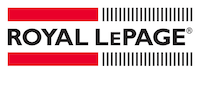The pre-approved mortgage process
A pre-approval is when a potential mortgage lender looks at your finances to find out the maximum amount they will lend you and what interest rate they will charge you. With a pre-approval, you can:
- Know the maximum amount of a mortgage you could qualify for
- Estimate your mortgage payments
- Lock in an interest rate for 60 to 120 days, depending on the lender
The pre-approved mortgage amount is the maximum you may get. It does not guarantee that you’ll get a mortgage loan for that amount. The approved mortgage amount will depend on the value of your home and the amount of your down payment. It may be a good idea to also look at properties in a lower price range so that you don’t stretch your budget to its limit. Remember that you’ll also need money for:
- Closing costs
- Moving costs
- Ongoing maintenance costs
Check your credit report
Before you start shopping around for a mortgage, order a copy of your credit report. Make sure it does not contain any errors. A potential lender will look at your credit report before approving you for a mortgage. If you don’t have a good credit score, the mortgage lender may:
- Refuse to approve your mortgage
- Decide to approve it for a lower amount or at a higher interest rate
- Only consider your application if you have a large down payment
- Require that someone co-sign with you on the mortgage
What to provide to your lender to get pre-approved
Before pre-approving you, a lender will look at your current assets (what you own), your income and your current level of debt. You’ll need to provide your lender or mortgage broker with the following:
- Identification
- Proof of employment
- Proof you can pay for the down payment and closing costs
- Information about your other assets, such as a car, cottage or boat
- Information about your debts or financial obligations
For proof of employment, your lender or mortgage broker may ask you to provide:
- Proof of current salary or hourly pay rate (for example, a current pay stub and a letter from your employer)
- Your position and length of time with the organization
- Notices of Assessment from the Canada Revenue Agency for the past two years, if you’re self-employed
For proof you can pay the down payment, your lender or mortgage broker may ask you to provide recent financial statements from bank accounts or investments. Your debts or financial obligations may include:
- Credit card balances and limits, including those on store credit cards
- Child or spousal support amounts
- Car loans or leases
- Lines of credit
- Student loans
- Other loans
Questions to ask your lender or broker when applying for a pre-approved mortgage
When getting pre-approved, ask your broker or lender the following:
- How long they guarantee the pre-approved mortgage rate
- Will you automatically get the lowest rate if interest rates go down while you’re pre-approved
- If the pre-approval can be extended
Questions to ask when shopping for a mortgage
Compare the whole package offered by each lender. Ask about:
- The interest rate
- The term
- The amortization period
- Be fees you have to pay
- Your payment options
- Your prepayment options
- Ways you can save on interest
- Optional life, critical illness, disability and employment mortgage insurance
- Penalties if you sell your property before the end of your term
- Options if you want to pay your entire mortgage off early
- Transferring the remaining amount of your mortgage and the terms to a new property without paying a penalty if you sell your home
- Registering the mortgage with a standard or collateral charge
Negotiate your mortgage contract
Once a lender decides to lend you money, you’ll have to negotiate the terms and conditions of the mortgage, such as:
- The amount
- The amortization period
- The term
- How often you’ll make payments
- The interest rate
- If it’s an open or closed mortgage
Learn more about mortgages on the Canada Housing and Mortgage Corporation (CMHC) website.



